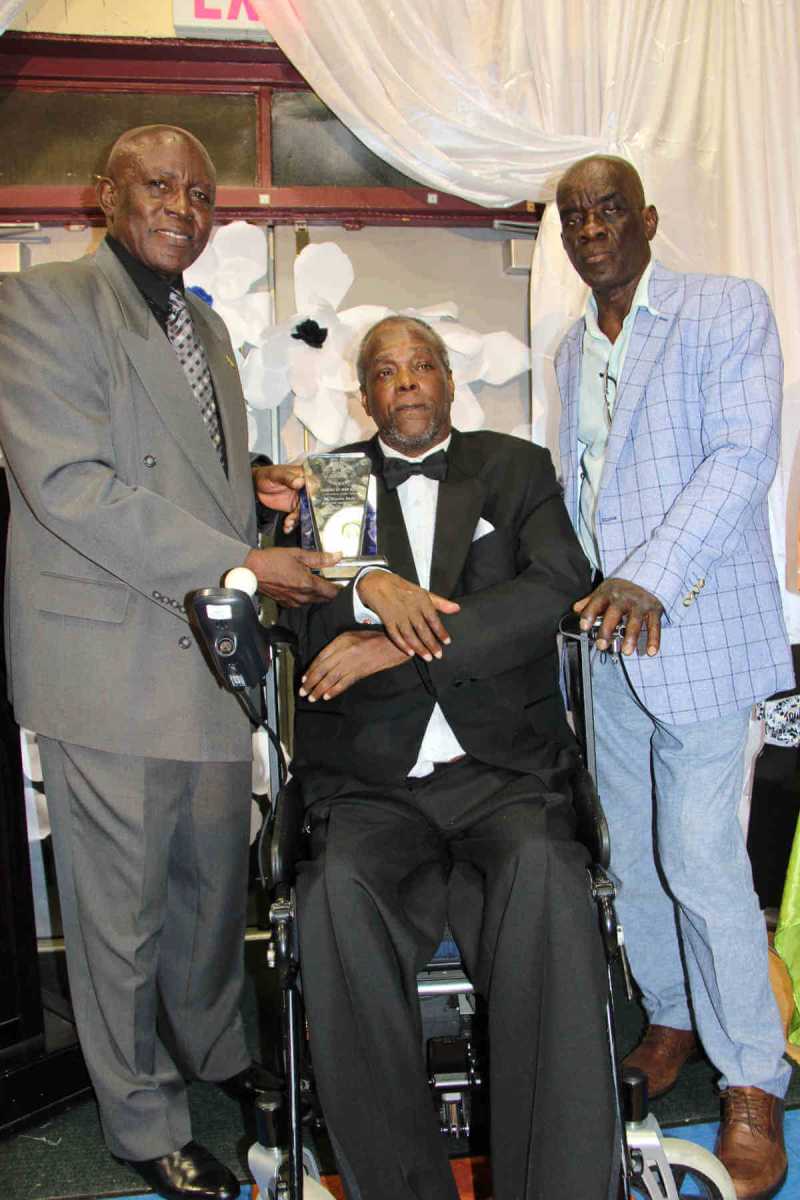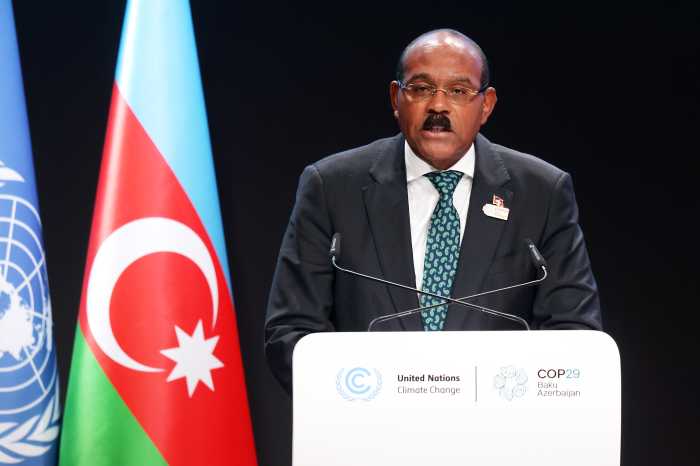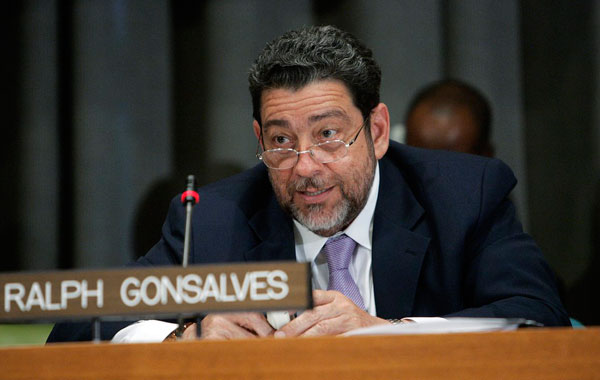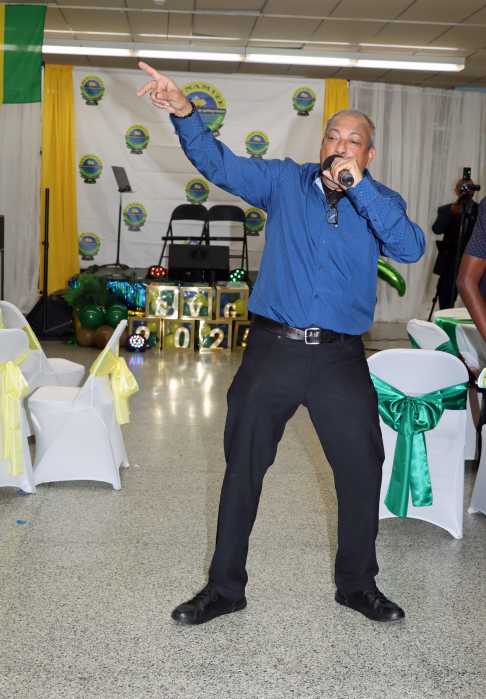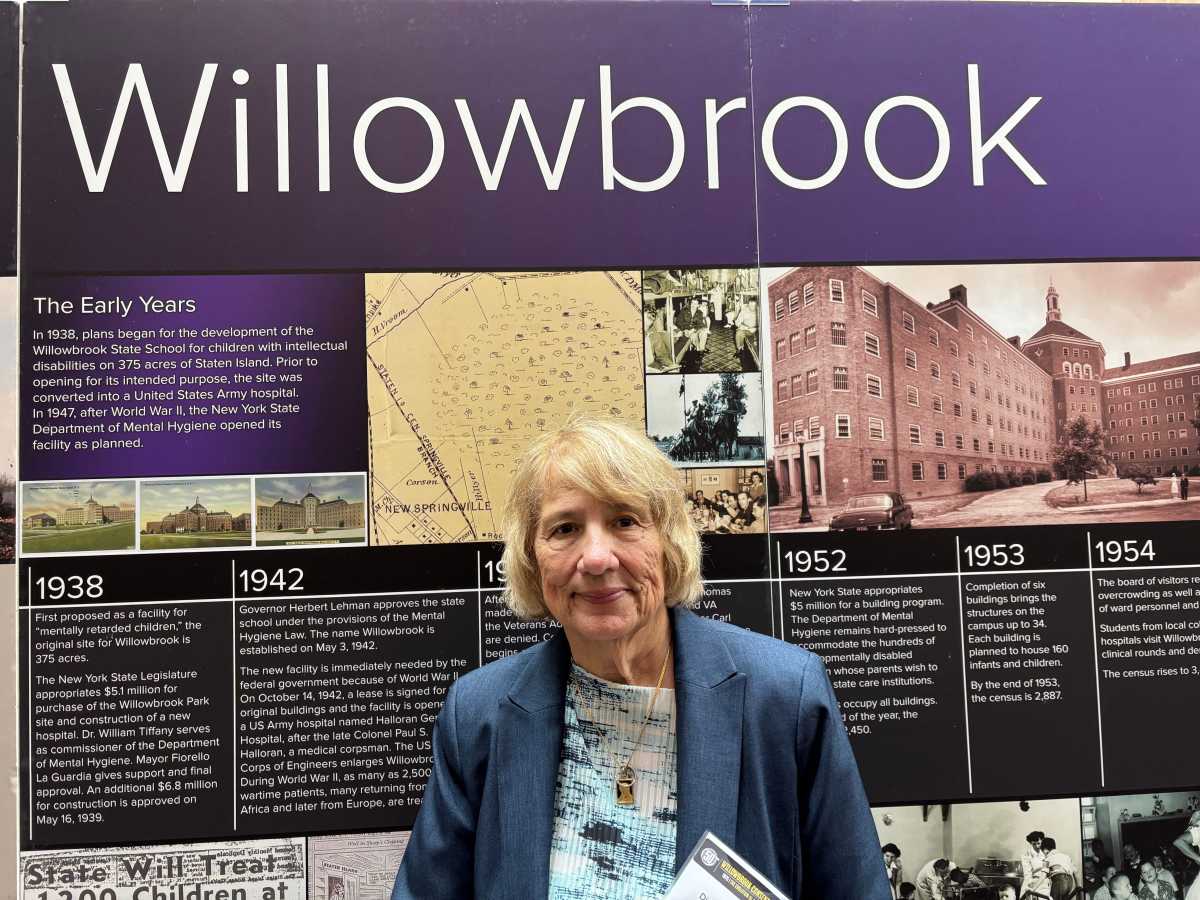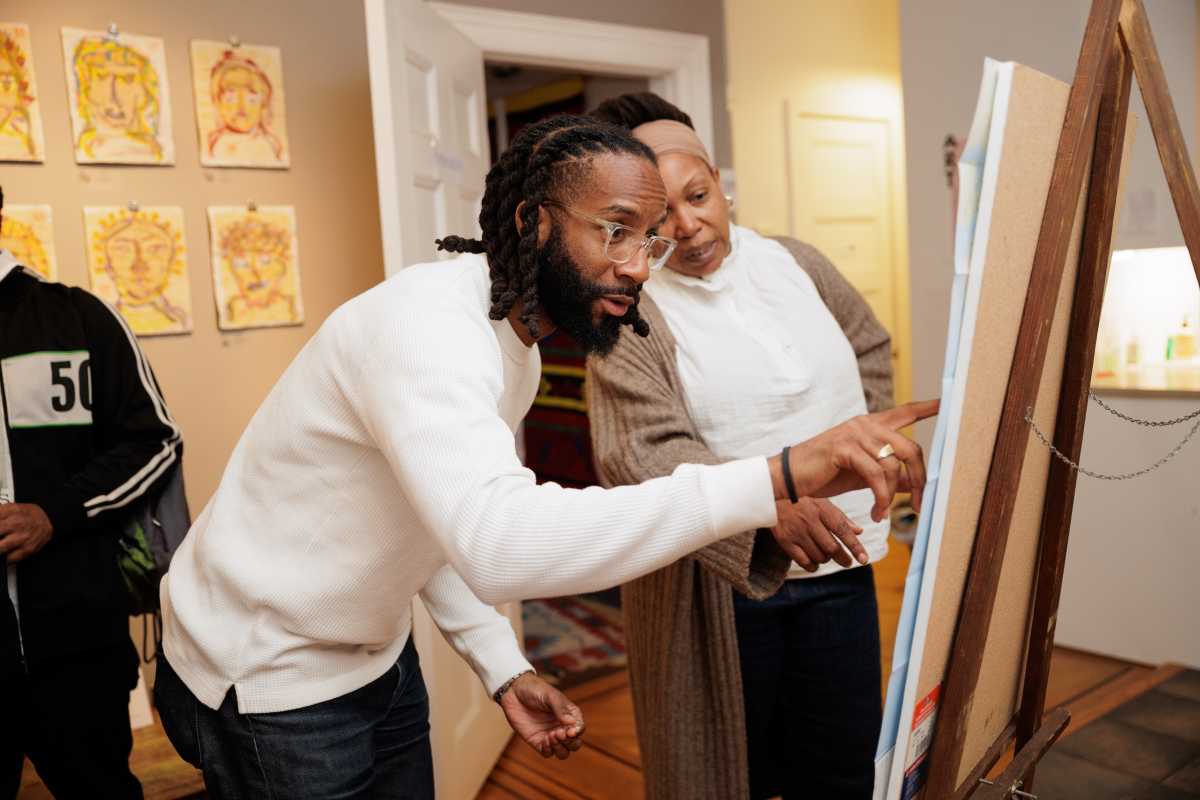The Brooklyn-based, Vincentian group, Friends of Sion Hill, Inc. on Saturday, April 13 bestowed its Lifetime Achievement Award on former West Indies fast bowler Winston Davis at a gala honor ceremony at the Friends of Crown Heights Educational Center in Brooklyn.
“On April 23, 1983, Winston Davis made us real proud,” said Frank Montgomery Clarke, a former Counsellor at the St. Vincent and the Grenadines Embassy in Washington, D.C., in introducing the wheelchair-bound Davis to the sell-out audience at the group’s 4th Annual Black-Tie Gala.
“Lloyd ‘Manager’ Lewis and Winston Davis were all of us,” added Clarke, who played with Davis in the devastating Sion Hill Cricket Team in the local cricket championship in the late 1970s to early1980s. The late Lewis was manager of the team.
Clarke recalled Davis’s destructive, fast bowling spell for the West Indies, of 7-51, against Australia in the 1983 Cricket World Cup.
“When Winston Davis played cricket, he was the fastest (bowler) in St. Vincent and the Grenadines and the West Indies,” said Howie Prince, St. Vincent and the Grenadines Consul General to the United States, in his remarks.
Prince also recalled that, when his cricket team played against the local Flour Mills in the 1980s, “Winston almost bowled out the entire team.”
In Davis’s biography, which was inadvertently omitted from the souvenir journal, Friends of Sion Hill, Inc. described him as “one of the best fast bowlers of the planet” in the 1980s.
“In another time, another place, he would have been famous and feted across the cricket world,” the biography says. “But then, nearly all the best fast bowlers were West Indian.
“He had to break into a line-up that included Malcolm Marshall, Andy Roberts, Michael Holding and Joel Garner who, as far as opposing batsmen were concerned, were the ‘Four Horsemen of the Apocalypse’, but a degree or two more dangerous,” it adds.
“Even so, Winston played 15 Test matches and 53 One-Day Internationals, a fair number in those days,” it continues. “And one unusually, sun-blessed day at Leeds (England), in 1983, he made history, bowling out a mighty Australian team in a World Cup tie with a whirlwind burst of six wickets for 14, seven for 51 in all — which would stand as a World Cup record until the 21st century.”
Still, the biography says that Davis was “more often on the fringe than in the team.
“But in (English) county cricket, he was much in demand: Every English team wanted their own West Indian to bully the opposition, if only in self-defense,” it says.
The biography notes that, when Davis first went to play for Glamorgan, “he was a bit raw and naive.”
“But, later, especially after he moved to Northamptonshire, he was recognized as one of the best in the business,” it says.
The biography quotes former England bowler-turned-commentator, Mike Selvey, as saying of Davis: “For sheer, uncomplicated textbook method only Richard Hadlee was superior.
“Winston was quick, athletic, willing and a popular team man, and averaged more than 60 wickets a season in that phase,” Selvey said.
The biography says that, by 1992, at 34, Davis “drifted out of the game.”
Late in 1997, he was returned to St. Vincent and the Grenadines to help build a church, according to the biography.
“He was up in a tree, sawing a branch that had become entangled with another one. The top branch then crashed down on him. He fell only a few feet, but he was left a tetraplegic,” the biography says.
It says that Davis was flown to England for treatment.
“And it was then, in this terrible time, that Winston was to perform a more important role than he, or perhaps anyone, has ever played on the field,” the biography says. “Firstly, he would change the Professional Cricketers’ Association.”
Around the same time, the biography says a young cricketer, Jamie Hood, was also terribly injured in a car crash.
Since one was just starting out on his career and one had finished, neither was covered by the insurance schemes then in operation, the biography says.
At first, it says the special wheelchair and vehicle Winston needed had to be provided by friends and strangers “rallying round.”
The association saw the problem and transformed itself; it became Davis’s biggest source of help.
Secondly, the biography says Davis himself was “an inspiration.”
“His enduring faith, his stoicism, his good nature and his humor entranced everyone who came into contact with him,” it says. “People felt that if Winston could face adversity in such a manner, then they could face their own troubles, too.
“More than 20 years on, he is still an inspiration and a delight to everyone he meets,” it adds.
Davis, who now lives in Worcestershire, England, appeared in a film, “Because of You,” made by Worcestershire County Council’s Social Services department.
“People with a disability can often be seen as just takers; and so, for me, starring in this film gave me the opportunity to give something back to the community,” Wikipedia quoted Davis as saying about film.
Davis, who flew in from England for the ceremony, told patrons Saturday night that he “was not big on awards.
“I got into trouble,” he said, without elaborating, after receiving a standing ovation.
Davis said he never planned to play cricket for the West Indies.
But “looking back now, I have no regret we didn’t spend time in the classroom,” he said, disclosing that he spent more time playing cricket rather than learning Latin, French and Spanish in secondary school.
“Cricket is a team sport,” he added. “And, as the speaker (Dr. Richard Byron-Cox, who delivered the keynote address) said about leadership, you follow good leaders.”
Oxley Lowman, president of the Friends of Sion Hill, Inc., singled out members, Gary Thomas and Debbie Laidlow-Lewis, for working “tirelessly” in getting Davis to travel from the United Kingdom for the award.
“As Winston gave his ‘Thank You’ speech, I felt the joy in me for being at this historic event,” Lowman told Caribbean Life afterwards.


